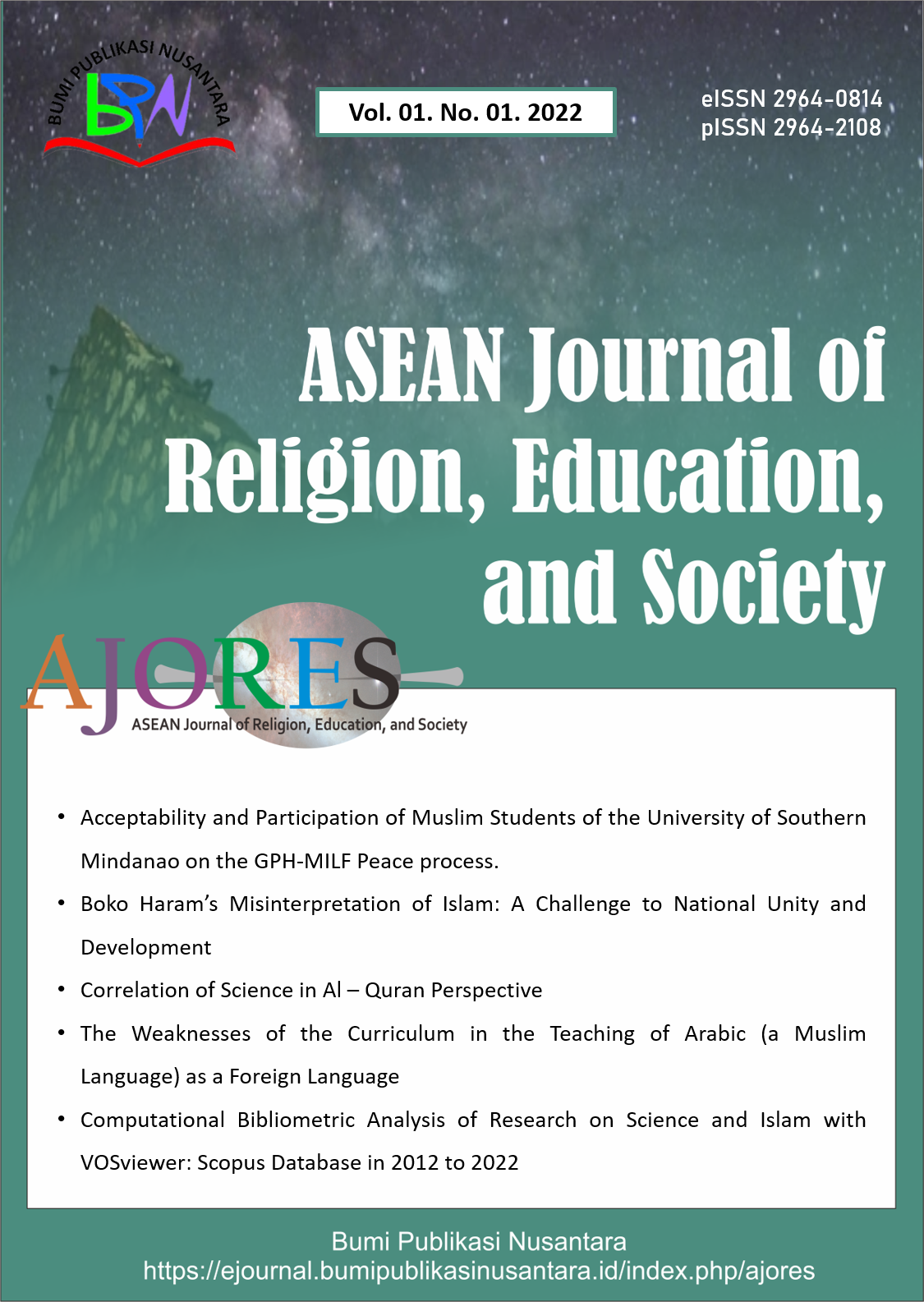Effect of Religion, Gender, and Overconfident Interactions on Investment Decisions Tiar Lina
 ), Moch Ikhsan Salis(2), Kayla Tsabita Aqila(3),
), Moch Ikhsan Salis(2), Kayla Tsabita Aqila(3),
(1) Universitas Singaperbangsa Karawang
(2) Universitas Singaperbangsa Karawang
(3) Universitas Singaperbangsa Karawang
 Corresponding Author
Corresponding Author
Abstract
Keywords
References
Albaity, M. S., and Rahman, M. (2012). Gender, ethnicity, and religion and investment decisions: Malaysian evidence. Journal of Sociological Research, 3(2), 502-519.
Arifin, Z., andSoleha, E. (2019). Overconfidence , attitude toward risk , and financial literacy : a case in indonesia stock exchange. Review of Integrative Business and Economics Research, 8(4), 6722.
Beckmann, D., Menkhoff, L., and Suto, M. (2008). Does culture influence asset managers’ views and behavior? Journal of Economic Behavior and Organization, 67(3–4), 624–643.
de Mooij, M., and Hofstede, G. (2011). Cross-cultural consumer behavior: A review of research findings. Journal of International Consumer Marketing, 23(3–4), 181–192.
Huang, Y. S., Song, F. M., and Wang, Y. (2012). Monetary policy and corporate investment: Evidence from Chinese micro data. China and World Economy, 20(5), 1-20.
Jaiswal, B., and Kamil, N. (2012). Gender, behavioral finance, and the investment decision. Business Review, 7(2), 8-22.
Jaiyeoba, H. B., and Haron, R. (2016). Qualitative research in financial markets. Asian Review of Accounting, 18(1), 2–5.
Jawaheer, B. M., and Manual, V. (2016). Gender Differences in Investment Decision Making Among the Working Class of Mauritius. Imperial Journal of Interdisciplinary Research, 2(9), 2454–1362.
Lambert, J., Bessière, V., andN’Goala, G. (2012). Does expertise influence the impact of overconfidence on judgment, valuation, and investment decision? Journal of Economic Psychology, 33(6), 1115–1128.
Lestari, W., Salim, U., Sudarma, M., and Al-Habsyi, T. (2014). Determinants of investment decision among moslem entrepreneurs. IAMURE International Journal of Business and Management, 8, 1.
Miller, A. S., and Stark, R. (2002). Gender and religiousness: Can socialization explanations be saved? American Journal of Sociology, 107(6), 1399–1423.
Nainggolan, R., Tungka, N. F., and Christina, N. (2018). Literasi keuangan ditinjau dari gender, etnis dan agama mahasiswa di Indonesia. Jurnal Akuntansi dan Pajak Literasi, 22(2), 1–10.
Paramita, R. S., Isbanah, Y., and Purwohandoko. (2018). Bias Kognitif Dan Kepribadian Individu: Studi Perilaku Investor Muda. JRMSI - Jurnal Riset Manajemen Sains Indonesia, 9(2), 214–235.
Petersen, J. A., Kushwaha, T., and Kumar, V. (2015). Marketing communication strategies and consumer financial decision making: The role of national culture. Journal of Marketing, 79(1), 44–63. h
Pratiwi, I. (2015). Pengaruh faktor demografi terhadap jenis investasi dan prijati. Jurnal Ilmu dan Riset Manajemen, 4(2), 1–15.
Putri, W. W., and Hamidi, M. (2019). Pengaruh literasi keuangan, efikasi keuangan, dan faktor demografi terhadap pengambilan keputusan investasi (studi kasus pada mahasiswa magister manajemen fakultas ekonomi Universitas Andalas Padang). Jurnal Ilmiah Mahasiswa Ekonomi Manajemen, 4(1), 398–412
Qadri, S. U., and Shabbir, M. (2014). Empirical research of overconfidence and illusion of control biases, Impact on investor’s decision making: Anevidence from ISE. European Journal of Business and Management, 6(14), 38–44.
Richards, D. W., Rutterford, J., Kodwani, D., and Fenton-O’Creevy, M. (2017). Stock market investors’ use of stop losses and the disposition effect. European Journal of Finance, 23(2), 130–152.
Rieger, M. O., and Wang, M. (2012). Can ambiguity aversion solve the equity premium puzzle? Survey evidence from international data. Finance Research Letters, 9(2), 63–72.
Statman, M., and Weng, J. A. (2010). Investments across Cultures. The Journal of Investment Consulting, 11(1), 37–44.
Syahnur, K. N. F., and Yahya, S. D. (2022). Studi faktor determinan keputusan investasi generasi milenial pada aset kripto. AkMen Jurnal Ilmiah, 19(2), 144–153.
Talpsepp, T. (2013). Does gender and age affect investor performance and the disposition effect? Research in Economics and Business: Central and Eastern Europe, 2(1), 76–93.
Walton, R., Forsyth, J., and Alderman, J. (2017). How religious beliefs influence financial decision-making: Implications for business leaders. Graziadio Business Report, 20(3), 1–9.
Wibisono, O. P. (2013). Pengaruh kompetensi dan kepercayaan diri investor terhadap perilaku perdagangan saham. Journal of Business and Banking, 3(1), 47.
Yang, X., and Zhu, L. (2016). Ambiguity vs risk: An Experimental research of overconfidence, gender and trading activity. Journal of Behavioral and Experimental Finance, 9, 125- 131.
Zahera, S. A., and Bansal, R. (2018). Do investors exhibit behavioral biases in investment decision-making? A systematic review. Qualitative Research in Financial Markets, 10(2), 210–251.
Zahera, S. A., and Bansal, R. (2019). A research of prominence for disposition effect: a systematic review. Qualitative Research in Financial Markets, 11(1), 2–21.
Article Metrics
Abstract View : 1261 times
: 1261 times Download : 562 times
Download : 562 times
Refbacks
- There are currently no refbacks.
Copyright (c) 2024 Bumi Publikasi Nusantara

This work is licensed under a Creative Commons Attribution-ShareAlike 4.0 International License.







